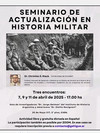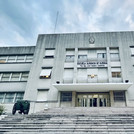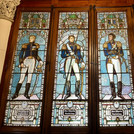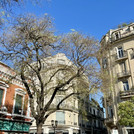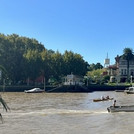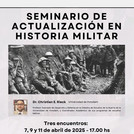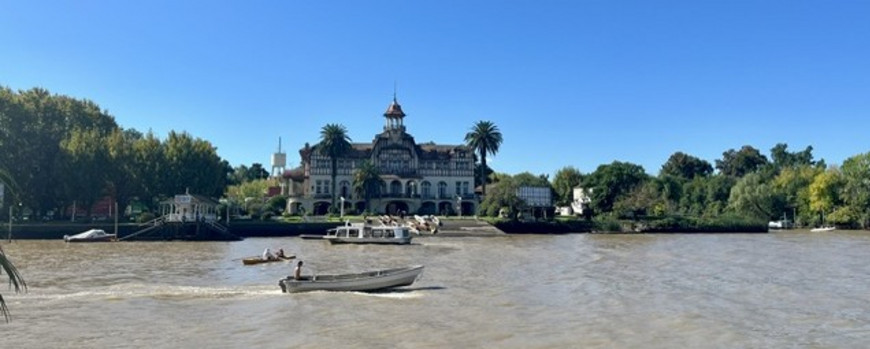Lecture tour of Christian E. Rieck to Argentina
From March 29 to April 19, 2025, Christian E. Rieck spent three weeks in Buenos Aires, where he gave a total of twelve Spanish-language lectures and talks at partner universities of the University of Potsdam. At the invitation of the Konrad Adenauer Foundation, Dr. Rieck spoke first in Montevideo and then in Buenos Aires to journalists, diplomats, politicians, think tankers and professors from CARI, the Argentinian think tank for international relations, on the topics of the turning point in security and defence (Zeitenwende) in Germany and European defence policy. It was not surprising that the view of the war in Ukraine differed greatly from that in Germany. The Argentinian elites - as elsewhere in the global South - may feel like value partners of the Europeans, but certainly not as allies with similar interests. Consequently, multi-alignment is seen there as a rational and
interest-maximizing strategy that maintains constructive relations with all major powers in a multipolar world. This was followed by a lecture to the graduating class of the German Pestalozzi School - once founded as an anti-national socialist educational institution - on the rise of the extreme right in Germany.
The second week focused on German military historiography: At the renowned research institute for Argentinean history at the Universidad de Buenos Aires UBA - the Instituto Ravignani - Dr. Rieck held a three-part lecture series on the topic of “lines of development in German military historiography”, which on the one hand introduced Sönke Neitzel's thesis of “history of war without war” to a Spanish-speaking audience and on the other hand formulated his own desiderata with regard to the Europeanization of military history and the historiography of the most recent operational history of the Bundeswehr as well as multinationality in NATO and the EU as a “history of violence of the present”, which needs to be accompanied by a rediscovery of the history of technology and that of operations. It was hardly surprising, but nevertheless interesting, to see how similar the development of
military history in the Federal Republic and in Argentina has been (with a time lag) since the end of the last war - whereby historiography has gradually experienced a de-ideologization but also an emptying of the concept of war since the war generation. In order for military history not to lose an understanding of the inherent logic, traditions and internal dynamics of the armed forces, he pleaded for “critical empathy” so as not to fall into a new cult of heroism nor into a moral anti-belicism.
Finally, Dr. Rieck spoke at the Universidad Nacional de San Martín UNSAM on the future of NATO and the EU against the backdrop of the war in Ukraine and the new administration in Washington. His hypothesis was that NATO would survive Donald Trump's second term in office, but that European defense policy would nevertheless experience a strong boost, which would also have a technological and nuclear component. Lastly, he spoke to soldiers and civilians at the Command and Staff College of the Argentinian armed forces about the Bundeswehr's recent operational history and the Europeanization of military historiography. Of particular interest was the wealth of experience of the Argentinian armed forces' multinational peacekeeping missions (Haiti, Cyprus).
The trip was supported by KoUP funds from the university and was a great success. It is particularly pleasing that the partnership initiated here will lead to a return visit in SS25 by the head of the military history research group at the UBA, Prof. Dr. María Inés Tato, who will come to the Chair of Military History with a three-month research grant from the Konrad Adenauer Foundation.


